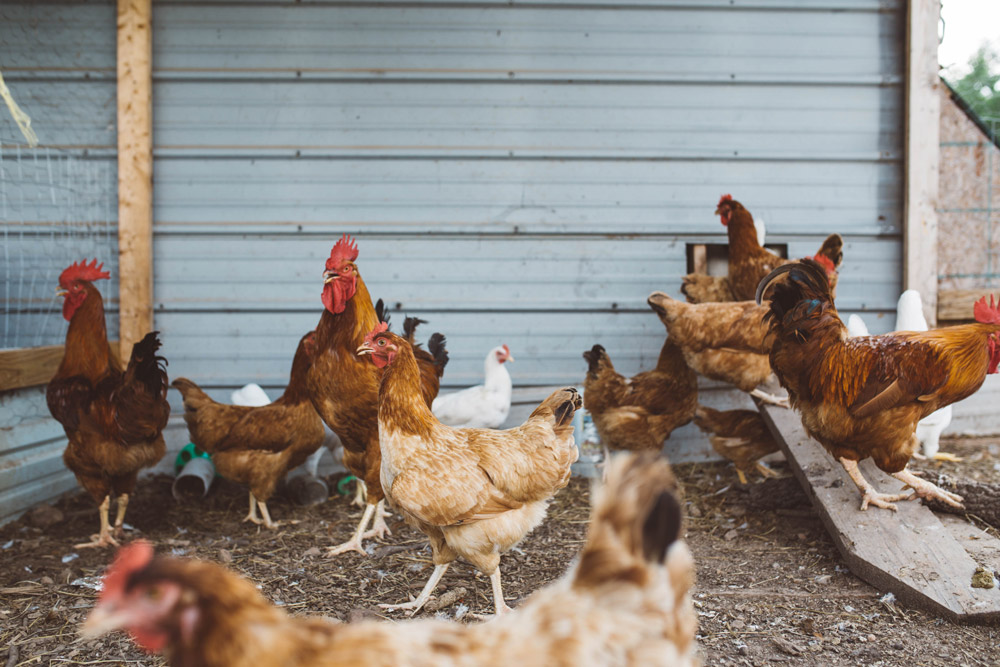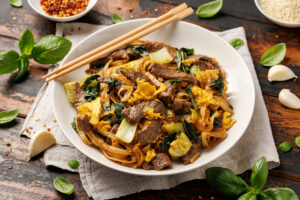The Deep Roots of Chinese Cooking in Thai Cuisine
Discover how Chinese cooking has shaped the gastronomic evolution of Thai cuisine!
Discover the authentic in Asian cuisine food


Free-range eggs have become the norm in households all across Australia. Despite being nearly twice the price of caged eggs, 68% of Australians bought free-range eggs last year. Thanks to increased public scrutiny and pressure from animal rights groups, the egg industry – caged egg producers in particular – is more tightly monitored and regulated than ever.
Despite this, egg corporations have been penalised by either the ACCC or the Federal Court in 6 of the last 8 years, leading to Small Business Minister Michael McCormack to introduce a new national free-range egg information standard.
So it’s important to be aware of what you’re buying—and who you’re buying from—when purchasing eggs. What you think of as ‘free-range’ may not truly live up to that label.
Free range
The information standard introduced in 2017 requires the ‘free-range’ tag only be used if hens have “meaningful and regular” access to the outdoors during daylight hours, with a stocking density of 10,000 or fewer birds per hectare, and all eggs must have the stocking density “prominently displayed” on the packaging.
Consumer advocacy groups and some smaller producers wanted the stocking density limit lowered to 150 birds per hectare, while the CSIRO code of practice caps out at 1500, so you can see that there’s quite a discrepancy between what is legal and what is thought of as truly ‘free-range’. If you’re worried, check the stocking density number labelled on your egg carton and do some research into the egg producer.
Barn Laid
Barn raised chickens are not kept in cages, are given a nesting area and space to spread their wings. They are not allowed out of the barn and are generally packed in tighter than free-range chickens. While this is still a better option than cage eggs, it’s not ideal.
Cage Eggs
Birds are kept in cages with no means of exercising or spreading their wings, often in poor conditions, and have to eat, sleep, lay and defecate all in the same place. There’s a lot of information on cage eggs and factory farming out there if you’re interested or want a better understanding of the industry.
Health Benefits
Seeing as you’re paying a premium for free-range eggs, you’d hope there’d be some benefits for you and your family beyond improved standards of living for chickens. And the good news is, there are! A U.S. study from 2007 shows that, when compared to cage eggs, free-range eggs have:
That’s a pretty significant difference, especially when you consider how often you eat eggs.
The Best Egg
Like most things in life, you get what you pay for, and the healthiest, tastiest and yes, most expensive eggs are from ‘true’ free-range farms, also called pasture eggs. These are generally small, organic farms that allow their birds to wander and eat a chicken’s natural diet—all kinds of seeds, green plants, insects and worms, usually supplemented with grain or laying mash. They then pass those nutrients into their eggs.
Pasture eggs are easily found at your local market, and many farmers sell directly to the public.
The best way to keep eggs is to store them in their original carton in the refrigerator as soon as possible after purchase. Cartons reduce water loss and protect flavours from other foods being absorbed into the eggs. Fresh eggs can be kept refrigerated in their carton for up to 6 weeks, but check the use by date for more guidance.
If you’re worried about the freshness of your eggs, then the best way to test them is by submerging them in water. Fresh eggs will sink, while old eggs will float.

Discover how Chinese cooking has shaped the gastronomic evolution of Thai cuisine!

Crispy outside, savoury and tender within, these noodle-wrap prawns are sure to delight!
-300x200.jpg)
Enjoy the rosy layers of sweet Kuih Lapis with our step-by-step recipe!